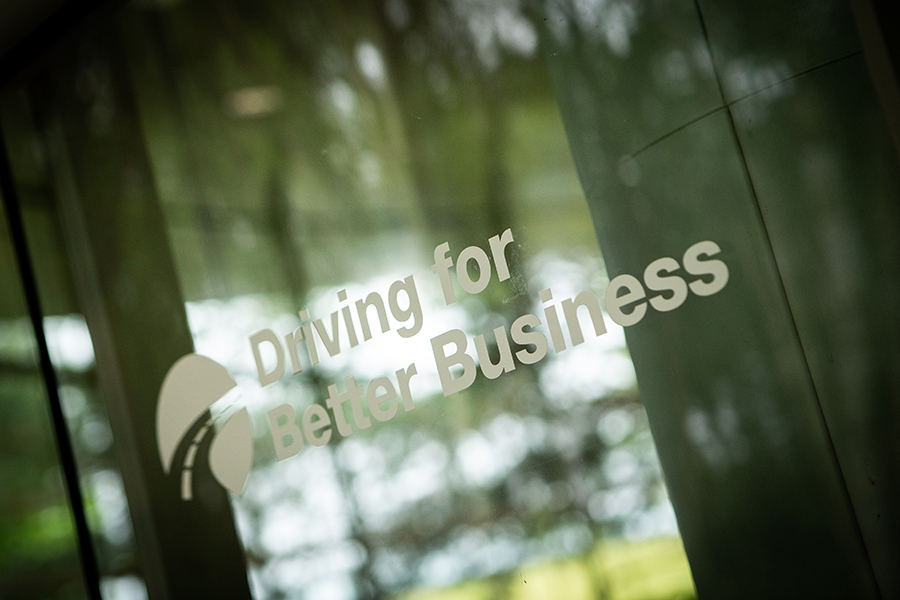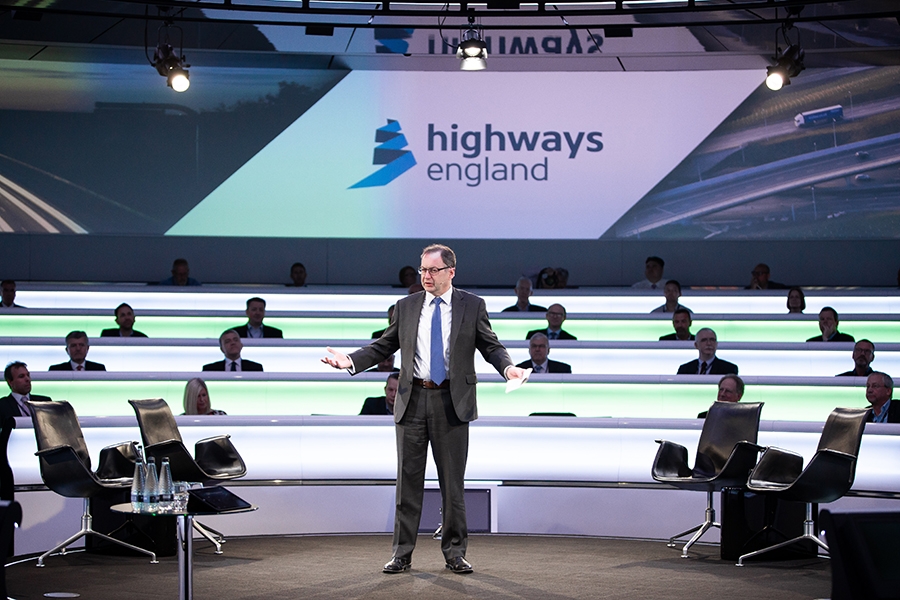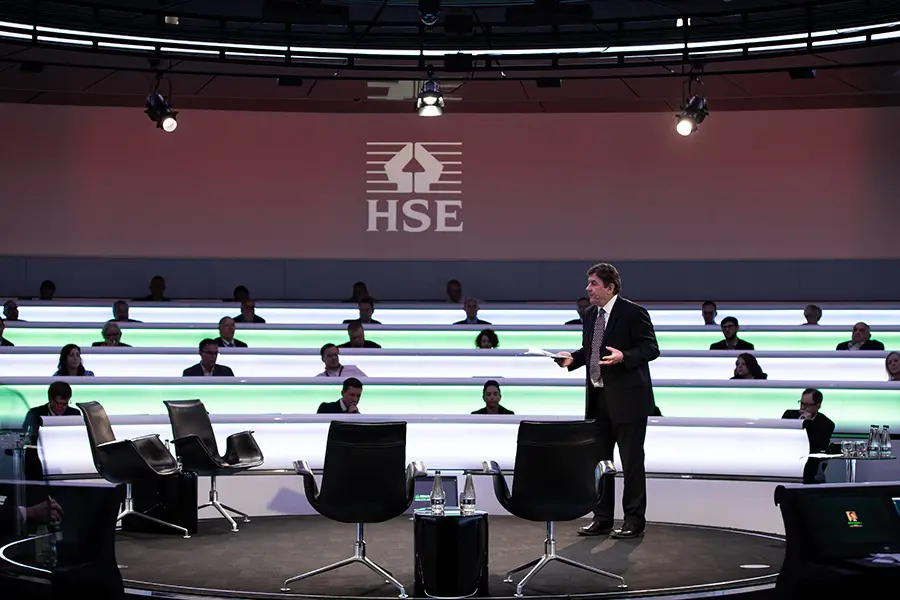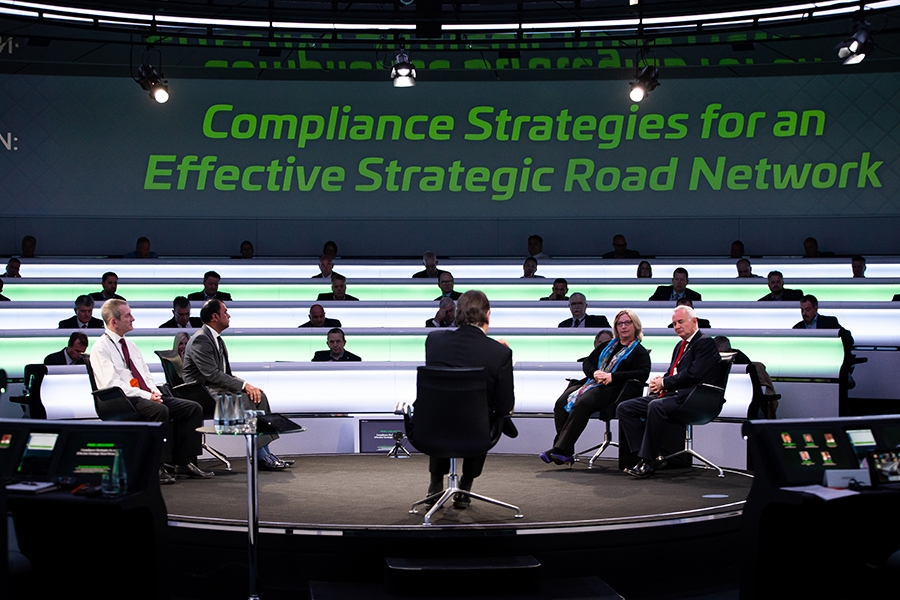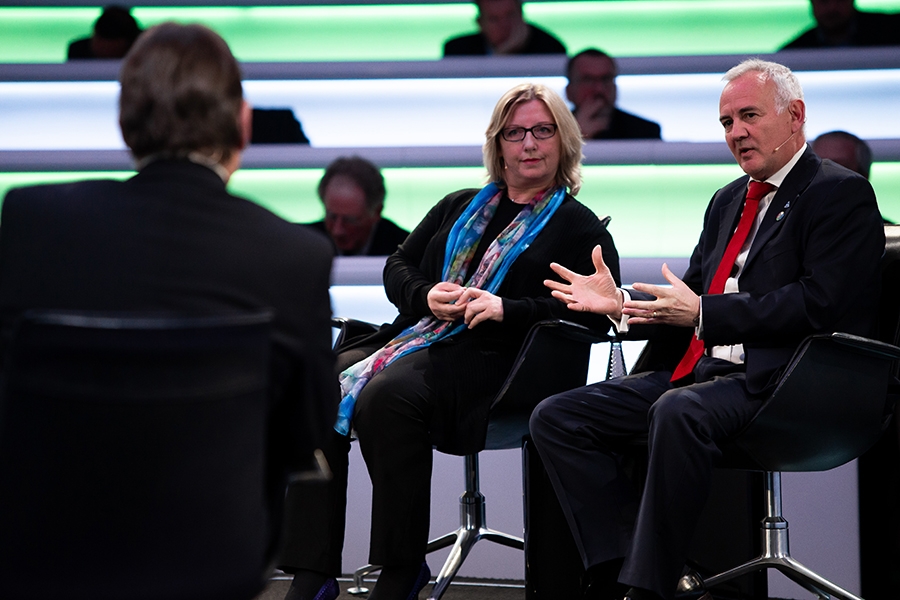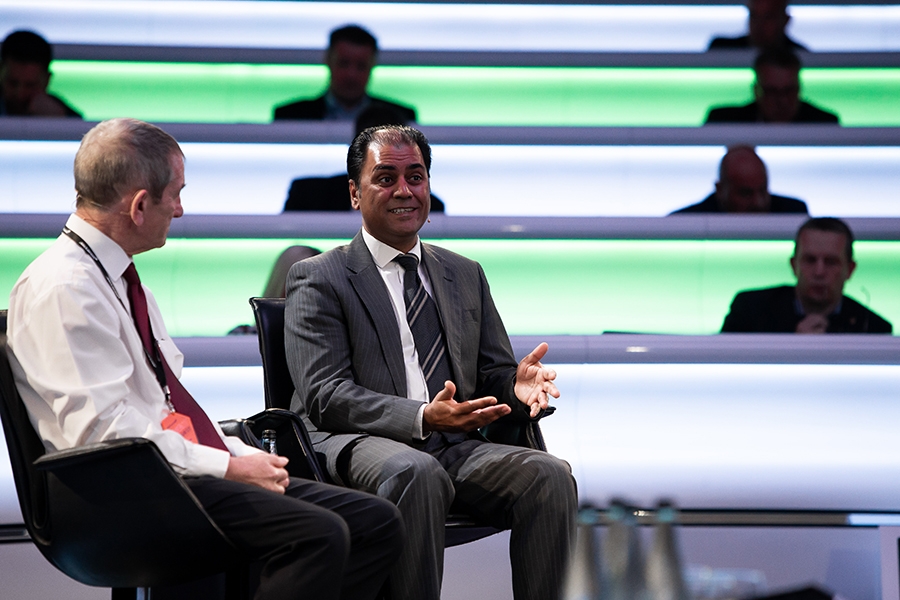Driving for Better Business Private Sector Summit

As part of the United Nations Global Road Safety Week (6-12 May 2019) which this year has the theme of Leadership, Highways England hosted the Driving for Better Business Private Sector Summit, for CEOs, Board Directors and Fleet Decision Makers from some of the UK’s leading businesses, at McLaren’s inspirational new Thought Leadership Centre.
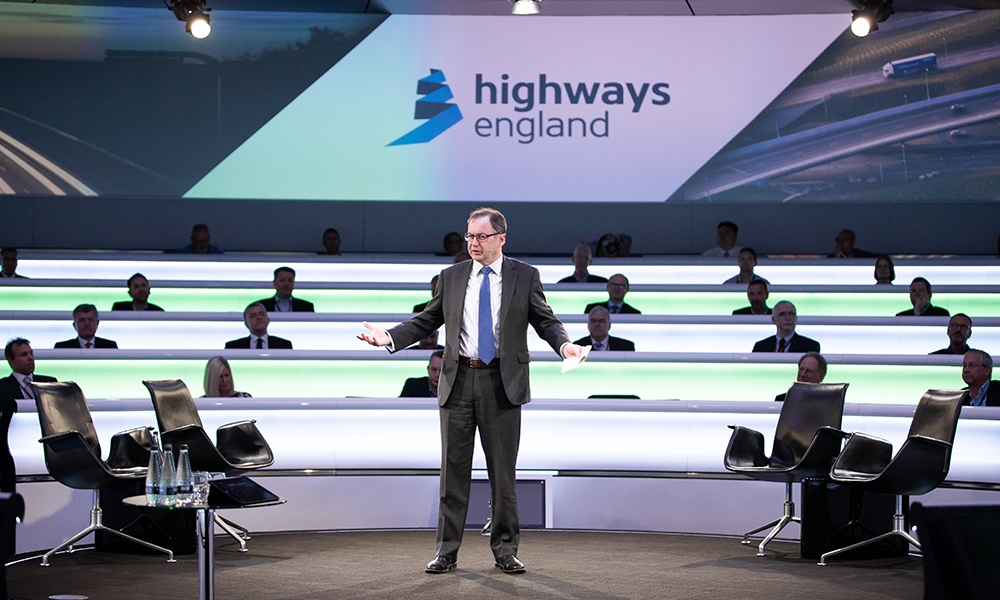
Over 100 prominent business leaders from UK companies, including many of the major players in the Highways Sector gathered at the McLaren Thought Leadership Centre to discuss the importance of leadership and compliance in reducing road incidents on England’s Strategic Road Network (SRN) of motorways and major A-roads.
Speaking at this high-level summit, Jim O’Sullivan, Chief Executive of Highways England said: “The Strategic Road Network is vital to the country and the performance of some of the country’s leading sectors – such as logistics and freight, retail and wholesale, construction and manufacturing.
“Whether single lane, dual carriageway or motorway, an incident on the network has serious implications for people and businesses. To put it in perspective, if one lane of the M25 has to be closed, the resultant tailback builds up at about a mile a minute. A fifteen-minute lane closure results in a fifteen-mile tailback.
We expect drivers who use our roads for business to have the highest standards of driving and compliance. There is no doubt that their companies have a role to play in this, not just for their own employees but right through their supply chains and business networks.”
Darren Lindsay, Corporate Public Affairs Africa & Middle East and Safe Mobility at Michelin and Member of the UN Road Safety Collaboration Working Group on Work Related Road Safety, said: “In 1990 there were 5,000 fatalities on the road and we’ve reduced this by a factor of three. One of the major contributors of this is technology, however, we still have a long way to go to educate road users.
“Sustainable Development Goals are being used by corporate companies as a pole star to look at how they can benefit their business, with SDG 3.6 aiming to reduce deaths by half by 2030, and SDG 11.2 focusing on safer cities. However, there is one area that is forgotten and where we can take a role in leadership is how can we integrate sustainability practices into reporting. If we do not monitor we cannot improve.
“Driving for Better Business is very important for sharing best practice to harness what is important in road safety, and I believe we can all lead by example and be accountable for our actions.”


Martin Temple CBE, Chairman of the Health and Safety Executive said: “Road transport is at the heart of the British economy and driving for work is an issue that affects almost every business in the UK.
“Vehicle technology has contributed to making our roads safer and there is an opportunity for the private sector to adopt a more robust ‘safe system’ approach in conjunction with sustainable development goals and to monitor and report on corporate road safety.
“Road safety is complex and it is not easy for one organisation alone to manage. By working together, and encouraging a safer work-related driving culture, we can reduce the need to use enforcement powers.”
The summit also included panel discussions on the needs and benefits of strong leadership, with panellists including; Sarah Bell, Traffic Commissioner for London and the South East; Tracey Fuller, Head of CSR, Arval UK & BNP Paribas UK; Stuart Lovatt, Strategic Road Safety Lead, Highways England; Stewart Lightbody, Head of Fleet Services at Anglian Water and Director of ACFO; Jay Parmar, Director of Policy, BVRLA; Darren Lindsey, Corporate Public Affairs Africa & Middle East and Safe Mobility at Michelin; and Rory Morgan, Head of Logistics Support, Western Europe at Iron Mountain; Mark Winn, Chief Driving Examiner, Driver & Vehicle Standards Agency.
Delegates joined in the debates as the panel discussed topics including:
- The importance of including work-related road risk in ALL board meetings?
- How the private sector can raise standards of compliance and minimise disruption?
- What are the key drivers behind commitment and success?
- Where do the main challenges lie for leaders?
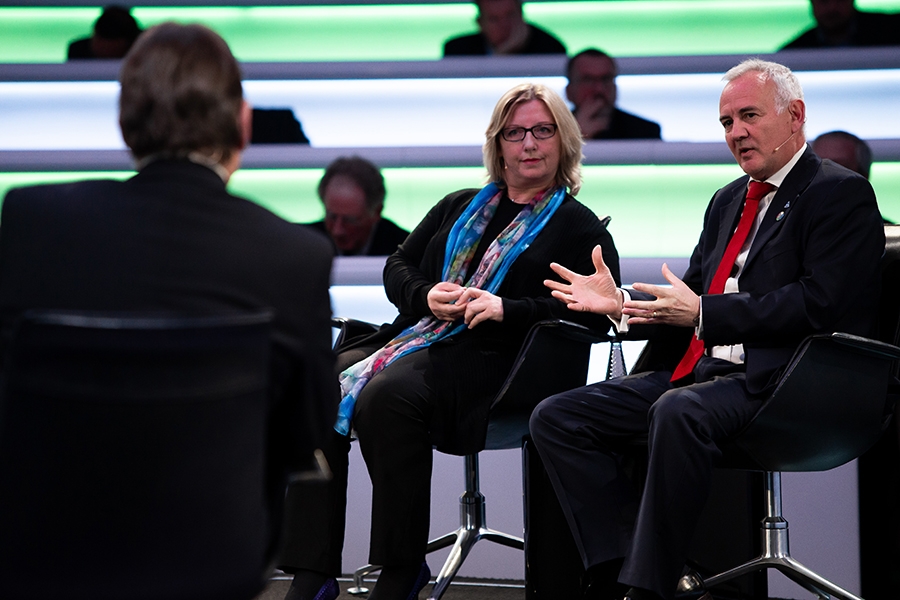

Presentations were also delivered at the event by DfBB ‘Business Champions:’ companies that have implemented the Driving For Better Business programme and as a result are experiencing a host of benefits to their business including reductions in insurance claims, lower maintenance costs, repair costs, admin costs, fuel use and emissions.
Among the DfBB Business Champions addressing business leaders, was James Haluch, Managing Director, Amey Highways who said: “There are tangible benefits to organisations adopting policies that are integral to the Driving for Better Business programme.
“For example, in the last twelve months, Amey Highway’s ‘at fault’ incidents reduced by 49 per cent. Like-for-like fleet emissions of CO2 dropped by six per cent; we recorded 30 per cent better efficiency in fleet utilisation and used four per cent less fuel.
“It is now the time to encourage open and honest collaboration between organisations and suppliers to continue to do better in ensuring that our people and employees are safe on the roads.”
Business Champion Recognition
During the summit, several new Driving for Better Business Champions were invited to the stage by Jim O’Sullivan including Balfour Beatty, Skanska, Morgan Sindall, Jacobs, Carnell Support Services, Toppesfield and Wilson & Scott. All of these organisations are key members of the Highways England supply chain and, following an industry-wide clarion call from Mr O’Sullivan last year, were being recognised for their success at ensuring consistently high standards in managing those who drive for work.
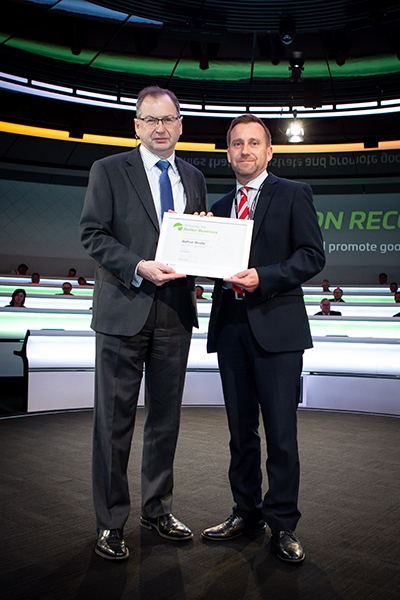
Phill Ross
Head of Health & Safety
Balfour Beatty
As an existing champion, Balfour Beatty have long since seen the benefits of effective fleet management and their recently updated case study shows continued improvement. Over the last 6 years Balfour Beatty have seen their crash frequency rate fall by 63% – equivalent to £570,000 of annual benefits.
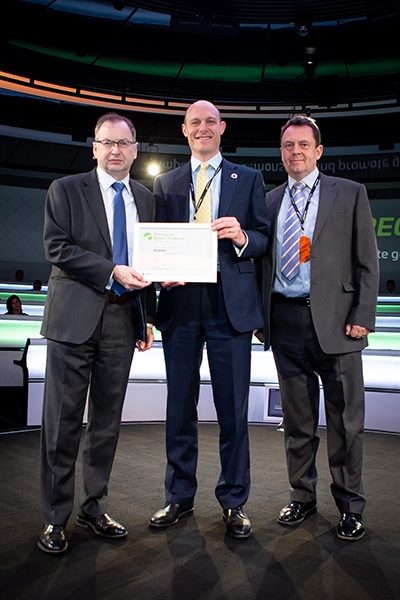
Thomas Faulkner
Executive Vice President
James Mitchell
Head of Transport & Logistics
Skanska UK
Skanska have been a business Champion since 2012. Their recently revised case study again demonstrates continued improvement with the incident rate for their commercial fleet down a third over the last two years. Skanska also have an established programme to help raise standards throughout their own supply chain.
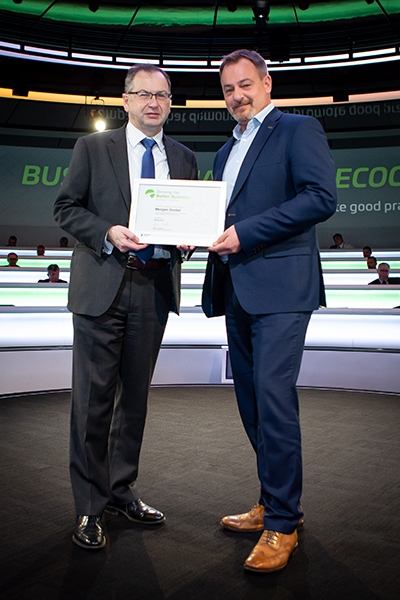
Simon Smith
Managing Director
Morgan Sindall Infrastructure
Morgan Sindall was the first new Business Champion recognised. They have seen benefits across the board including total cost of claims down by 18% in just 12 months and fuel efficiency up 9.5% as a result of safer driving.
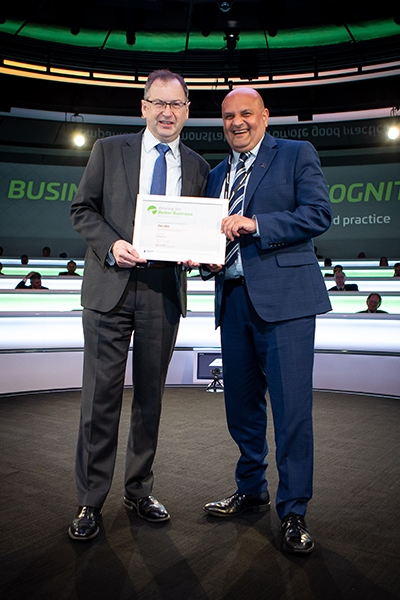
Vip Gandhi
Senior Vice President
Jacobs
Jacobs have always placed huge importance on driver safety, recognising that driving for work is the most hazardous activity their staff are exposed to. In the UK, their work has seen a fall in collisions of 50%, year on year since 2015, and this example of best practice is now being rolled out across their international workforce covering 30,000 drivers in 46 countries.
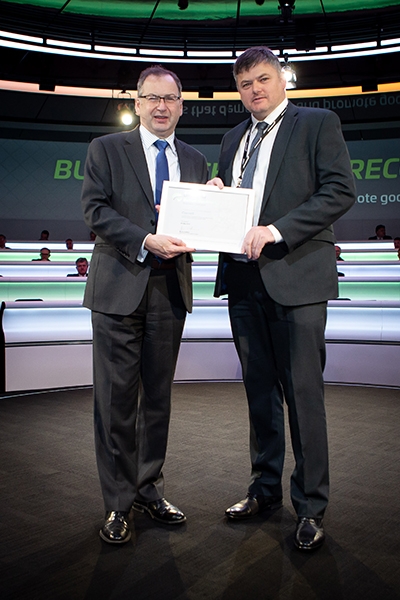
Lee Gill
Plant and Transport Director
Carnell Support Services
Following a full review of driving for work policies, and the installation of telematics in their vehicles, Carnell Support Services have seen third party claims reduce by a huge 60% over three years, and the need for driver interventions is down by 85%, greatly increasing the operational efficiency of the business.
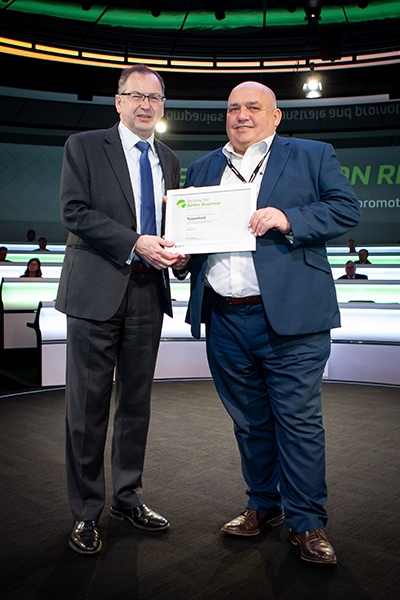
Glyn Williams
Health & Safety Director
Toppesfield
Toppesfield manage work-related driving as part of their company-wide health and safety programme. Significant investment in new vehicles and safety technology, including restricting all their light commercial vehicles to 70mph, contributed to Toppesfield achieving an overall accident frequency rate of zero in 2017.
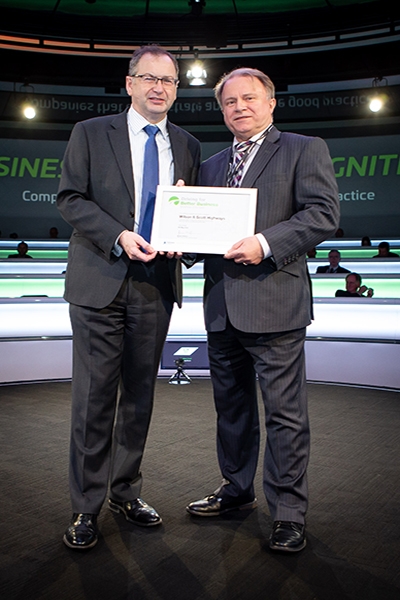
Steven Scott
Managing Director
Wilson & Scott
Road marking firm Wilson & Scott halved their third-party claim rate despite a 78% increase in their fleet. Contributing to this achievement were the fitment of telematics to the company’s vehicles and the launch of a new in-house dedicated driver training facility.

Simon Turner
Campaign Manager
Driving for Better Business
Summing up the event, Simon Turner, Campaign Manager, Driving For Better Business said: “The Driving for Better Business programme is designed to help the private sector understand its role in managing those who drive for work, and the contribution it makes in keeping the country’s Strategic Road Network flowing.
4 million vehicles use this network every day – comprising approximately 4,400 miles of motorways and major trunk roads – travelling 85 billion miles, and carrying 1 billion tonnes of freight each year.”
“Understandably, leaders have many issues they must contend with to run their respective organisations and we have found that often, elements that contribute to work-related road safety are not as high on their agendas as they could be.”
“However, the factors around riding or driving for work have changed significantly in recent years. Promoting safe, sustainable mobility is now more important than ever as companies look to reduce both business risk and their impact on the environment. Leaders need to be seen to back robust policies that ensure compliance with existing legislation, and to have a firm grip on all their fleet activity. We are also calling on them to extend that leadership beyond their own firms, sharing good practice and demanding the same high standards of their own supply chains.”
“The key messages from our excellent speakers clearly resonated with delegates. At the end of the presentations, business leaders from almost 60 separate organisations who, collectively, manage over 160,000 drivers and more than 100,000 company vehicles, all pledged to support the Driving for Better Business campaign.”
Private Sector Summit Programme
LEADING BY EXAMPLE |
|
|---|---|
| 10:00 | Arrival and coffee |
| 10:30 | Staff who drive for McLaren reflect us as a brand Mandeep Dhatt, Executive Director of HR, McLaren Automotive |
| Why the Strategic Road Network is vital to UK plc Jim O’Sullivan, Chief Executive, Highways England |
|
| Leadership in Global Road Safety Darren Lindsey, Member of the UN Road Safety Collaboration Working Group on Work Related Road Safety, Private Sector Representative of the Steering Committee for the UN Road Safety Trust Fund |
IT’S NOT BUSINESS AS USUAL |
|
|---|---|
| 11:00 | HSE’s role in work-related road risk Martin Temple, CBE – Chairman of the Health and Safety Executive Road transport is at the heart of the British economy and driving for work is an issue that affects almost every business in the UK. There are around 500 work-related deaths every year. As the national regulator for health and safety, HSE plays a key strategic role and continues to work closely with our public sector partners to protect people and reduce the risks associated with driving for work but we cannot do it alone. We look to private sector organisations and industry to work with us to make a real difference to the safety of those at work. |
| Panel Discussion: Compliance Strategies for an Effective Road Network Chaired by Martin Temple
|
|
| Pastries and Coffee |
WHAT DRIVES SUCCESS? |
|
|---|---|
| 12:30 | The Benefits of Strong Leadership Stephen Briers, Editor-in-Chief at Fleet News There are many financial, risk mitigation, and CSR benefits to good management of those who drive for work. Examples of strong leadership are everywhere including Driving for Better Business, Fleet News and Van Excellence. We discuss what drives the decisions of companies that manage it well and how they deal with some important challenges. |
| Panel Discussion: Ask the Experts Chaired by Stephen Briers
|
BUSINESS CHAMPION RECOGNITION |
|
|---|---|
| 13:00 | Examples of best practice in the Highways England Supply Chain Certificates presented by Jim O’Sullivan, Chief Executive of Highways England
|
INSPIRING OTHERS |
|
|---|---|
| 13:30 | Our Procurement Processes are Key Johnny Schute, Chief Operating Officer at RSSB The rail industry recognises that the biggest risk to its workforce is now on the roads. To address this risk, and in common with other sectors, it is becoming the norm to expect higher standards of compliance from supply chains, and to champion best practice throughout business networks. Highways England is doing it, the public sector is on board and the rail industry is also now following suit. |
| We Need Your Leadership – A Call to Action James Haluch, Managing Director of Amey Highways You represent some of the largest and best run organisations in the country. We want to tap into your leadership skills to support the Driving for Better Business programme, helping us bring the rest of UK plc up to your standards and driving up standards through all our supply chains. |
|
| 14:00 | Lunch & McLaren Tour |


